
Gene Therapy
Latest News

Cell and gene therapies can be life-changing for patients with certain conditions, but the process of receiving them poses barriers for patients and caregivers that require multistakeholder solutions, according to a white paper from the National Pharmaceutical Council.
Latest Videos

More News
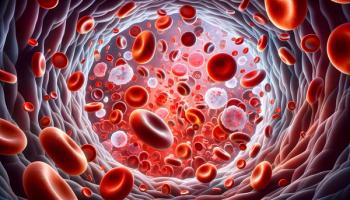
A phase 3 trial highlights betibeglogene autotemcel as a potentially curative gene therapy for severe transfusion-dependent β-thalassemia.
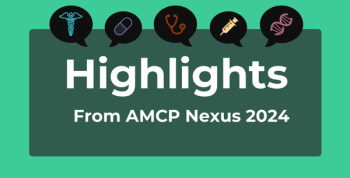
Check out this year's top coverage from The Academy of Managed Care Pharmacy (AMCP) Nexus 2024 meeting, which included relevant topics in health care policy, novel pharmaceutical developments, financial considerations across multiple conditions, and more.

Researchers study long-term safety of lentiviral gene therapy in primates, finding no evidence of somatic mutations or malignancy.
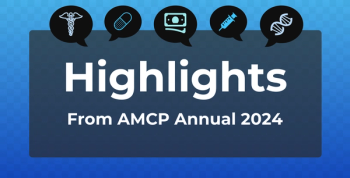
Among the most-read coverage for the annual meeting were presentations on the potential and costs of cell and gene therapies, the latest trends in the industry, and pharmacogenomic testing in mental health.

The CONNECT2-EDO51 phase 2 trial looks at PGN-EDO51, an investigational therapy for Duchenne muscular dystrophy (DMD), and is still ongoing in the United Kingdom.
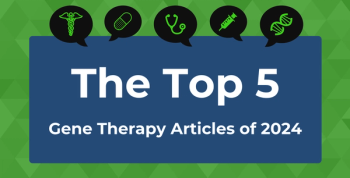
The most-read gene therapy articles included topics on FDA approvals, chimeric antigen receptor T-cell therapies, the cost-effectiveness of gene therapies, as well as other findings.

Real-world study compares the efficacy and safety of axicabtagene ciloleucel (axi-cel) and tisagenlecleucel (tisa-cel), finding that axi-cel provides superior progression-free survival but with higher toxicity.

Leaders of the American Society of Health-System Pharmacists (ASHP) say the time is now to prepare for providing innovative gene and cell therapies.
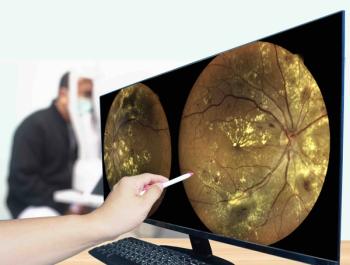
Gene therapy partially restores visual processing in the geniculostriate pathway of patients with Leber congenital amaurosis type 2 while maintaining compensatory activity in the retinotectal pathway.

Gene therapies can be life-changing for people, but the high cost plus the burden of treatment remain barriers to access and utilization, explained Kevin Niehoff, PharmD, BCMAS, of IPD Analytics.

Investigators said patients experienced adverse effects in line with those expected for myeloablative conditioning with busulfan following treatment with betibeglogene autotemcel (beti-cel; Zynteglo; bluebird bio).

Further research is needed to determine how once-weekly viltolarsen can slow disease progression and preserve motor function in boys and young men with Duchenne muscular dystrophy (DMD).

Clinical development and trial testing of vesleteplirsen (SRP-5051) for Duchenne muscular dystrophy (DMD) was stopped, with the developer citing safety concerns, FDA feedback, and an evolving therapeutic landscape.
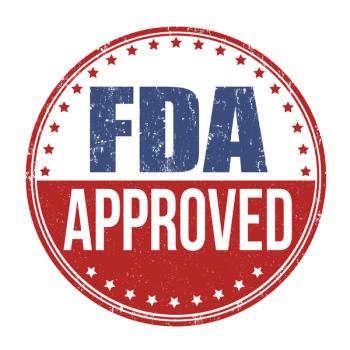
The approval marks the first time gene therapy will be available to treat patients with aromatic I-amino acid decarboxylase (AADC) deficiency.

The gene therapy improved annualized bleed rates, though a handful of study participants resumed factor IX prophylaxis.

New legislation would clarify rules around value-based contracts in Medicaid, and a new model is expanding access to gene therapies, explained Adam Colborn, JD, of AMCP.

The outcomes of the EMBARK and CIFFREO trials in boys aged 4 to 7 have raised concerns in the Duchenne muscular dystrophy (DMD) community and prompted layoffs at Pfizer.

Investigators said the unique features of chimeric antigen receptor (CAR) T-cell therapy may warrant novel approaches to cost-effectiveness analysis.

A new study reviews how various routes of adeno-associated virus (AAV) gene therapy administration influence local and peripheral immune responses, with a focus on those observed in clinical trials targeting the central nervous system (CNS).

Three patients with RPE65-related retinopathy showed improved function in both eyes following gene augmentation therapy treatment with voretigene neparvovec.
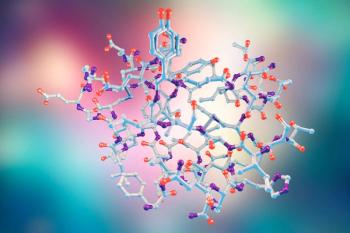
Insulin resistance plays a role in many diseases. The new research provides insights into why insulin resistance appears to be associated with neurodegenerative disorders.

Immunosuppressants used in adeno-associated virus (AAV) gene therapy for monogenic disorders present an adverse effect profile that is consistent with high-dose steroid use in other conditions, according to a meta-study that analyzed immunosuppressive protocols.

A new proof-of-concept method reliably engineered a hotspot mutation of SF3B1, a gene-splicing gene, into diverse cancer cell lines, outperforming other contemporary editing approaches.

Early data suggest chimeric antigen receptor (CAR) T-cell therapy can achieve meaningful long-term results.

A case report highlights a rare instance of parkinsonism following CAR T-cell therapy for multiple myeloma.







